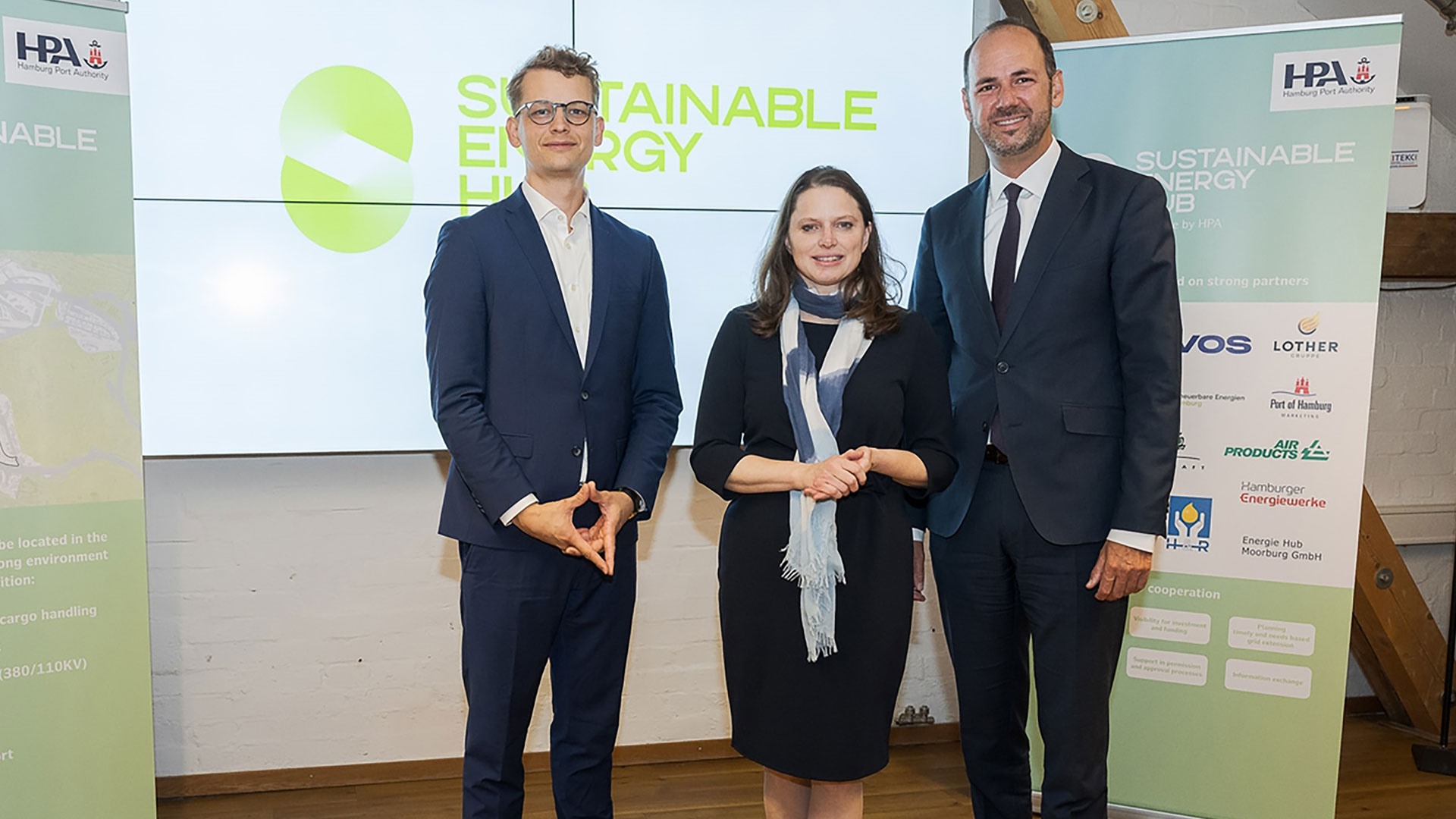Shore power for ships
The Port of Hamburg is at the forefront in the EU regarding shore-side power supply for containers and cruise ships. It is the first EU port to...

The Port of Hamburg faces an enormous task that will pave the way for a climate-neutral future, not only for the port and the city but also for a substantial portion of Germany and Europe. In line with this vision, the City of Hamburg is strategizing to convert a significant portion of the Port of Hamburg into a "Sustainable Energy Hub." Senator Dr. Melanie Leonhard emphasizes, "With the Port Development Plan 2040, the Senate has committed to harnessing the opportunities and challenges of the energy transition, developing the Sustainable Energy Hub as a cornerstone of the all-purpose port of Hamburg."
To ensure the efficiency of this development, the Ministry of Economics, in collaboration with the Hamburg Port Authority (HPA), launched the "Sustainable Energy Hub Hamburg" (SEH) initiative at the beginning of October. A multitude of companies already rooted in Hamburg, including Mabanaft, Hamburger Hafen und Logistik AG (HHLA), EVOS, Air Products, Green Ports Hamburg, Hamburger Energiewerke, Gasnetz Hamburg, Shell, Holborn, H&R Schindler, LOTHER GRUPPE, Energie Hub Moorburg GmbH, and Hamburg Green Hydrogen Hub, are actively participating in the initiative. Dr. Leonhard notes, "The involvement of numerous companies signals that we are on the right path."
„Germany is
projected to
require 130 TWh
of hydrogen
per year."
The initiative has a twofold objective. Firstly, it seeks to enhance collaboration among port companies. Secondly, it aims to heighten public awareness regarding the significance of the Port of Hamburg as an energy hub, given that the shift to sustainable energy will be a paramount issue in the coming years and decades. "Through this initiative, we aim to establish an ecosystem that facilitates
cooperation within the Port of Hamburg," emphasizes Friedrich Stuhrmann, Chief Commercial Officer at the HPA. This includes coordinating infrastructure needs among involved parties. The goal is to foster information exchange, identify mutually beneficial projects, and plan network expansion in accordance with timing and demand. This approach allows companies to leverage synergies and consolidate their interests.
The clock is ticking. According to the national hydrogen strategy, Germany will require approximately 130 TWh of hydrogen annually by 2030, with 70 percent of it expected to be covered by imports. This entails a substantial surge in demand. The Port of Hamburg is strategically positioned to play a pivotal role: Berths, high-voltage lines, motorways — much of the infrastructure is already in place. Additional measures will ensue. "We will forge ahead with developing space for the handling, storage, and processing of energy sources in a core area of the Port of Hamburg. We aim to support the transformation of the Port of Hamburg with suitable sites and the spatial concentration of future activities," states Friedrich Stuhrmann, Chief Commercial Officer at the HPA.
Geographically, the "Sustainable Energy Hub" will primarily be situated in the port districts of Neuhof, Hohe Schaar, Moorburg, and Harburg, which are home to large industrial and transshipment companies, have a robust network infrastructure, and maintain a sufficient distance from residential areas. The project's starting point is the site of a former fuel depot on the Hohe Schaar, acquired by the HPA. "Storage, processing and refining will take place here, as well as the relevant suppliers, service providers and manufacturers of systems and technical equipment for sustainable energy sources," explains Jannes Elfgen, Head of Port Energy Solutions at the HPA and the person responsible for the initiative.
Simultaneously, the HPA aims to assist companies within the initiative in developing new projects as part of the Sustainable Energy Hub. Elfgen states, "We aim to support the early identification and involvement of stakeholders such as the waterway police, fire brigade, and local licensing authorities." The transformation process can also be facilitated by conducting preliminary work for feasibility studies, including assessments of nautical restrictions and safety distances. The HPA can ensure the networking of stakeholders and companies beyond the SEH, thereby promoting the implementation of a comprehensive hydrogen value chain and a life cycle approach. Additionally, prioritizing the establishment of companies engaged in sustainable energy sources is crucial.